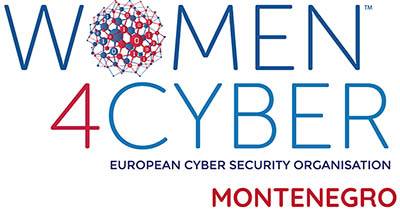Montenegro has entered a new phase of digital transformation — by introducing electronic ID cards that combine a personal identification document, health insurance card, and electronic signature.
Although the state initiated this process back in 2020, for many citizens it has turned into an ordeal — with hours spent waiting in lines in recent months. This raises an important question: is the problem merely technical disorganization, or does it also stem from a lack of trust in modernization and the digital system itself? Do citizens understand what they gain — and what they might lose — by switching to “smart” ID cards?
This system represents a significant step toward modernizing public administration and improving access to government services. However, while institutions emphasize efficiency and security, some citizens are rightly asking:
👉 Does the centralization of our data also mean giving up our privacy?
Digital transformation does not bring only technological changes — it also reshapes the way citizens perceive the relationship between the state and privacy.
The new electronic ID card is therefore not just an administrative document — it is a test of trust between the system and its citizens.
What does the new electronic ID card offer?
Montenegro’s new electronic ID card contains an embedded chip that stores citizens’ personal and health data, as well as a digital certificate for an electronic signature. In practice, this means that with a single document, a citizen can access eGovernment services, view their electronic health record, sign documents remotely, and complete administrative tasks without visiting a government counter.
The idea is to speed up processes, reduce bureaucracy, and make the state accessible “with a click.” However, this progress has not been met with enthusiasm everywhere — many citizens still fear that their data is too exposed and that the “smart card” may be smarter than they would like.
Biometric data – the most sensitive information we possess
Biometric data are physical and biological characteristics that uniquely identify each individual: fingerprints, facial features, and iris patterns. What makes them particularly sensitive is the fact that they cannot be changed. Unlike a password or PIN, a biometric trace cannot be “reset.”
Therefore, under Montenegro’s Law on Personal Data Protection and the EU General Data Protection Regulation (GDPR), biometric data fall into a special category of personal information. Their processing requires a clear legal basis, a specific and limited purpose, explicit user consent, and advanced technical protection measures.
In an ideal scenario, the state would store biometric data exclusively for issuing and verifying documents, without any secondary use. However, public trust depends precisely on how transparent that process is.
Legal framework: between standards and reality
Montenegro has largely harmonized its Law on Personal Data Protection with European standards (GDPR). There is also a supervisory authority — the Agency for Personal Data Protection and Free Access to Information — which oversees data processing and storage.
Unfortunately, citizens’ trust in state databases is often shaken. Cases of data leaks, hacking incidents, and poor communication from institutions only amplify the sense of insecurity. That is why every new digital service must be accompanied by a clear explanation to citizens: which data the state collects, why it collects them, how long they are stored, and who has access to them.
Fear of misuse – real or exaggerated?
Many citizens fear that consolidating their data into a single document could open the door to misuse, surveillance, or tracking. This concern is not new — similar dilemmas existed in EU countries when they introduced e-identities.
However, most risks do not stem from the technology itself, but from how it is managed. If the system does not ensure strict access rules, detailed logs of all data processing, and independent oversight — the digital ID could become a tool for monitoring rather than a convenience for citizens.
The practical value of the electronic ID card
Despite the skepticism, electronic ID cards bring numerous practical advantages: 24/7 access to government services, reduced administrative costs, less paperwork, faster procedures in healthcare, banking, and public administration, as well as a lower risk of identity document forgery. In short, an electronic ID card allows citizens to handle all administrative and public services from the comfort of their home — including digitally signing documents, accessing medical records, submitting applications, and registering rights.
For example, in Estonia — whose digital infrastructure is considered one of the most secure in the world — citizens use their eID card to pay bills, file taxes, and access healthcare entirely online, without visiting any office in person. Such practices show that increased convenience and service speed directly enhance citizens’ trust, as they clearly experience the benefits: less waiting, simpler procedures, and better control over their own data. Trust is further strengthened through transparent communication by the state about how data are used and protected.
The key condition for these advantages to take hold is trust. Without a sense of security, citizens will not willingly use digital services, no matter how useful they may be.
Balancing rights and technology
The essential question is not whether Montenegro should pursue digital transformation, but how it should do so. The right to privacy must remain just as strong in the digital world as it is in the physical one. The state must enhance technical security and encryption, ensure independent oversight of databases, regularly inform citizens about data processing, and provide simple mechanisms for objections and control over their data.
Trust as the foundation of a digital future
The introduction of electronic ID cards is one of Montenegro’s most significant steps toward becoming a digital society. But the success of this reform will not depend on chips and software — it will depend on the trust between citizens and the state.
Citizens must know that their data are not tools of control, but the foundation of their rights. And the state must demonstrate that digital transformation does not mean giving up privacy — but redefining it for the modern age.
When technology and trust stand on the same side, the digital future can be safe, transparent, and accessible to all.












